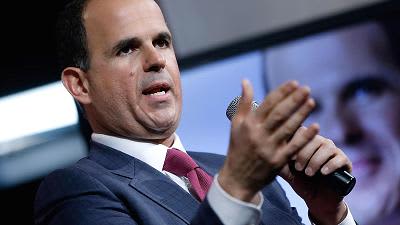President-elect Donald Trump has said that government regulation is a $2 trillion problem that hurts small businesses, and he claims to have a simple solution.
"I will formulate a rule which says that for every one new regulation, two old regulations must be eliminated," says Trump in a November YouTube speech outlining his policy plans for his first 100 days as president.
To help him achieve the goal, Trump has tapped investor activist Carl Icahn to be his unofficial czar of regulation.
"It's time to break free of excessive regulation and let our entrepreneurs do what they do best: Create jobs and support communities," says Icahn, in a written statement announcing his appointment. "President-elect Trump is serious about helping American families, and regulatory reform will be a critical component of making America work again."
He might find that harder to do than he expects. Here's why.
Just how big is the problem? It's unclear.
Even the scope of the problem is in dispute. Trump estimates $2 trillion, but that figure is controversial. It's difficult to measure the cost of regulation, says Dean Baker, economist and co-director of the Center for Economic and Policy Research, because while a regulation may cost money to comply with, it also may result in savings.
"If a regulation says I can't dump my sewage on my neighbor's lawn, then it will force me to spend money to have a sewage system. That's a cost to me, but a benefit to my neighbor," Baker tells CNBC. "The vast majority of the regulations that get cited have this character."
And, while staying compliant is a pain point for many small-business owners, a surprising number are actually grateful for the legitimacy regulations give them with customers.
Regulations are incredibly complicated
One thing everyone agrees on, though, is that regulations are complex. That's partly because they come from so many different places and they shift frequently.
"There are multiple agencies that regulate and they are not consistent," says Martin Baily, the Bernard L. Schwartz Chair in Economic Policy Development and a senior fellow in Economic Studies at Brookings.
Karen Mills, a senior fellow at the Harvard Business School and at the Mossavar-Rahmani Center for Business and Government at the Harvard Kennedy School, focuses on small-business lending regulation. More than seven different government agencies oversee small-business lending by banks, she has found.
"No one regulatory agency has full responsibility," Mills tells CNBC.
From 2009 until August 2013, Mills served in President Obama's Cabinet as the administrator of the U.S. Small Business Administration. At the end of 2016, Mills published a working paper about the overlapping regulatory confusion surrounding small-business lending.
"Companies tell us that they can deal with regulations once they know what they need to do and they can obtain permits in good time. But when rules change over time and permits drag out projects for several years, these are tough to deal with," says Baily.
Much of the conflicting tangle of red tape occurs at the state and local level, where the federal government has no say at all.Karen Millsformer head of the SBA
Regulations come from all levels of government
Federal regulations are not the same as state, municipal, county or citywide regulations. "In general, the federal government sets regulatory floors that states are free to go above, but not below," says Baker.
As a result, it's often the more local regulations that are the most painful for small-business owners.
"Just saying things like for every new regulation that gets put in place, two must be eliminated, doesn't do the trick. It's more complicated than that," says Mills.
"Much of the conflicting tangle of red tape occurs at the state and local level, [with] permits for example, where the federal government has no say at all."
Old regulations don't get reviewed
As new regulations get layered on top of each other, there is no system-wide review process, says Nicole Crain, visiting professor of policy studies and economics at Lafayette College and co-author of several studies on the cost of regulation, including one for the SBA and another for the National Association of Manufacturers.
In 2011, Obama attempted to kick-start a regulatory review process by mandating that government agencies controlled by the executive branch submit periodic assessments of their outstanding regulations.
But not all agencies are under the jurisdiction of the executive branch. And the law was not strictly enforced. "The degree to which these plans have been developed and implemented varies across agencies," says Crain. "In practice, few rules have been repealed using this process."
So, what can Trump do to decrease regulation?
The president-elect can have an impact if he's focused and strategic and willing to cooperate.
"The Trump administration can do quite a lot, but this will require persistence and, for the most part, will not happen with simply the stroke of the president's pen," says Crain.
First, and most meaningfully, he can cooperate with the Hill. "The fastest changes will come through collaboration with Congress by passing legislation that changes the laws that originally authorized the regulations," says Crain.
His nominees can also pursue his agenda. "Trump can appoint people to EPA and other agencies that will ease up on regulation," says Baily.
And his administration can set an example for states to follow, because while local governments have their own regulations, they're often influenced by federal protocol. "Many states have their own stronger measures, but in some states his policies could have a big impact in reducing regulations," says Baker.
"States would have the option of applying the higher standards themselves, but eliminating the national standard would end the regulation in most states."
Mills remains somewhat hopeful, especially if the Trump administration can adapt and use the latest, most high-tech tools. "There is a big opportunity for technology to play a transformative role over the next several years, and we hope Trump and his team will find expertise to help in this direction."



